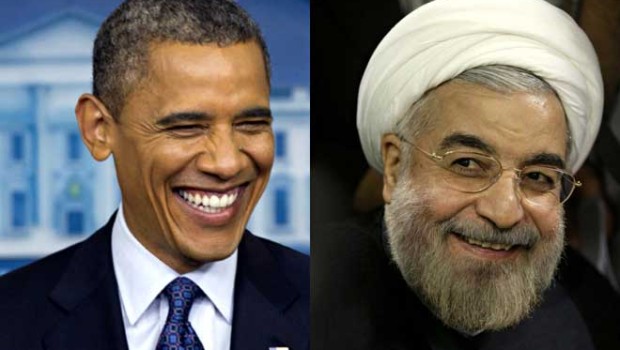Washington, Sep 28: President Barack Obama and Iranian President Hassan Rouhani spoke by phone on Friday, the highest-level contact between the two countries since the Iranian Revolution in 1979 and a sign that both sides are serious about reaching a pact on Iran's nuclear programme.
Obama had hoped to meet with Rouhani earlier this week while both men were in New York for the United Nations General Assembly, but Iran decided a meeting would be too complicated.

"I reiterated to President Rouhani what I said in New York. While there will surely be important obstacles to moving forward and success is by no means guaranteed, I believe we can reach a comprehensive solution," Obama said at the White House.
Obama said both men had directed their teams to work expeditiously toward an agreement on the nuclear issue.
Rouhani said on a Twitter feed believed to be genuine that in his phone conversation he told Obama "Have a Nice Day!" and Obama responded with "Thank you. Khodahafez (goodbye)."
The two men "expressed their mutual political will to rapidly solve the nuclear issue," the Twitter account said.
As president, Rouhani is the head of the government but has limited powers. Supreme Leader Ayatollah Ali Khamenei is the ultimate authority in Iran with final say on domestic and foreign policy, though Rouhani says he has been given full authority to negotiate on the nuclear issue.
Obama made reference to that power structure in his remarks and suggested that an agreement could achieve what Iran's leaders desire: winding down of crippling economic sanctions.
"Iran's supreme leader has issued a fatwa against the development of nuclear weapons. President Rouhani has indicated that Iran will never develop nuclear weapons," Obama said.
"I've made clear that we respect the right of the Iranian people to access peaceful nuclear energy in the context of Iran meeting its obligations. So the test will be meaningful, transparent and verifiable actions, which can also bring relief from the comprehensive international sanctions that are currently in place."








Comments
Add new comment